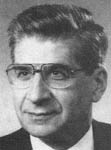In his introduction to Radiance: Creative Mitzvah Living, Rabbi Neal Gold writes that Danny Siegel’s teachings have profoundly shaped American Jewry – and he’s right.
If you attend a bar or a bat mitzvah today in a synagogue of any denomination, you’re likely to hear the young person talk about the “mitzvah project” they’ve chosen. And if you visit many synagogues all around the country and ask them what their most successful program is, they’ll probably tell you about their annual Mitzvah Day, in which the entire congregation goes out to do good deeds that range from planting trees to cleaning up the beach to visiting the sick and elderly.
Though he was not the only one who taught these practices, it was Siegel who toured the country year after year, advocating for them until they became a part of our culture. And if you count up the thousands of Jewish youth who have gone with him on trips to visit mitzvah heroes in Israel, you’ll find evidence of yet another one of Danny Siegel’s lasting influences on American Jewish life.
This anthology of his writings is a well-deserved tribute to one of our Jewish community’s creative writers and builders.
Some of the readers will find greatest interest in Siegel’s essays challenging the leaders of the Jewish community to put the doing of good deeds at the top of their agenda. Others will be most drawn to the selections of rabbinic literature that Danny has brought to the attention of a new generation. And still others will most appreciate his poetry, which has added to the spirit of many a Sabbath and holiday table.
Siegel’s most endearing gift, though, may be his talent for introducing us to unusual individual, both in North America and in Israel, whom we might never have met or to whom we would otherwise not have paid notice.
He writes, for instance, of how he once spoke to a youth group somewhere in the Midwest, which was collecting wedding gowns to send to low-income brides in Israel. As he stood outside before the talk began, a young woman came up to him and said, “I can’t stay for your talk, but here is my wedding dress.” And with that, she turned around and left.
Siegel never learned the young woman’s name, and their conversation lasted for only a minute – but the radiance of her face and the simplicity of her statement left a strong impression on his memory. The people in this woman’s city may not realize what a tzadeket (a righteous woman) is living in their community, but he does. And now readers will, too.
And then there’s the story of Rabbi Noah Golinkin, who was Siegel’s childhood rabbi. Back in the late 1940s, Golinkin fell in love with the woman with whom he wanted to spend the rest of his life. But with her consent, instead of buying his fiancée an engagement ring, he gave a thousand dollars to Israel in her honor.
You probably could have belonged to that synagogue all your life and not heard that story, for the rabbi and his wife were not the kind of people to display their piety or generosity. In one, unguarded moment, though, the rabbi shared with Siegel his story – and now the rest of us know it, too. I hope that, like me, you will remember it the next time you are asked to make a sacrificial gift for Israel.
Siegel says he once made a trip to Keansburg, N.J., to visit the place where his grandfather once ran a store that closed long ago – but the cop who grew up with Siegel’s father is still there. He told Siegel, “Sure, I remember your grandfather. During the depression years, he would take a nickel as a down payment on a pair of gloves and let you pay the rest whenever you could. He was a really nice guy.”
Imagine coming back to your grandfather’s hometown two generations later and finding out that this is the kind of legacy he left you.
The book also tells of the mitzvah heroes Danny has met in Israel: Miriam Mendilow who ran a place where the old found jobs, not pity; the Rabbanit Bracha Kapach, whose self-appointed task in life was to ensure that poor people had meals for Shabbat and holidays; and a whole host of other people who do life-saving and life-sanctifying jobs – people we might never have heard about were it were not for this book.
For me, the opportunity to meet unnoticed heroes like these was well worth my time and money, and the book’s other contents – the selections from rabbinic literature, the poems, and the rest – are bonuses.
Rabbi Jack Riemer is the author of Finding God in Unexpected Places and The Day I Met Father Isaac at the Supermarket.


